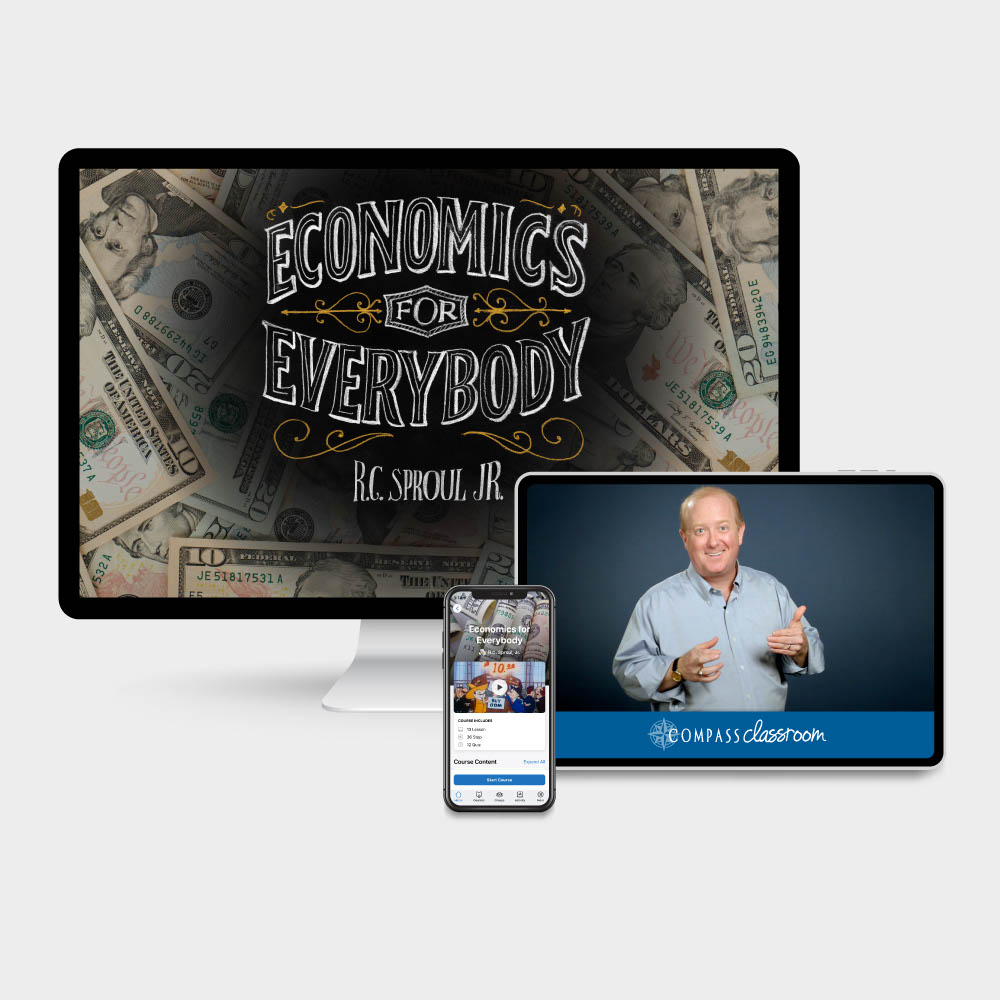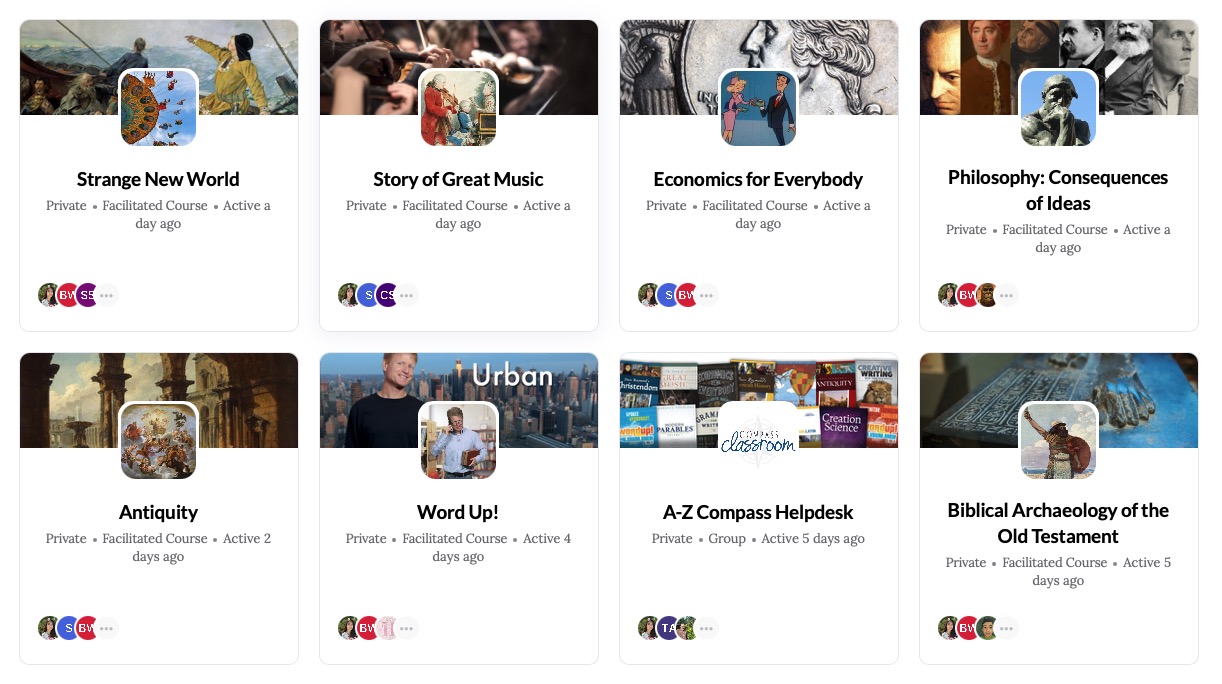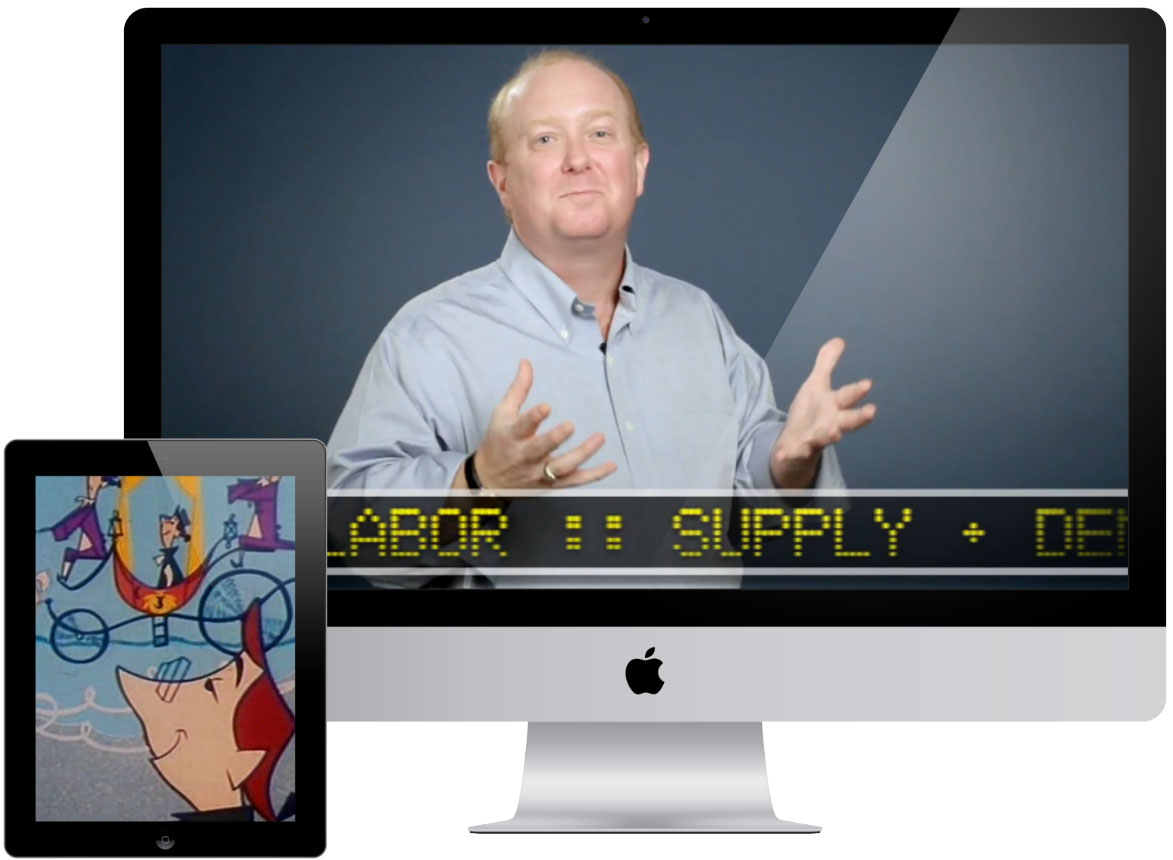
Share this post with another homeschool mom!

For over a decade, every time I tried to figure out economics, I became more confused. Why is Economics so confusing?
It was like entering that huge traffic circle in Paris around the Arc de Triomphe. As a foreigner, it’s crazy – the signs are in another language, hundreds of cars are chaotically speeding about, you have no idea where you are so you keep driving around, and around, and around trying to figure out what to do, eventually ending up someplace completely different from where you wanted to be.
Why is Economics so Confusing?
Why is this the experience so many people have with economics? There has to be a good reason why economics is so confusing.
First, most people only hear little bits and pieces, and so don’t see how everything fits together. This can be extremely confusing.
How does employment relate to interest rates?
How do interest rates relate to recessions?
And what are they really talking about anyway on CNBC?
But that’s not all – there are competing systems of economics that provide different interpretations of all those bits and pieces. Three of the most influential systems today were founded by men who approached the world very differently: Adam Smith, Karl Marx, and John Maynard Keynes. And they’re not alone in trying to explain economics. Who is right? And why?
There’s a Certain Logic to Economics
Ideas are build on other ideas. If you start in the wrong place and miss some key principles, you have to go around a few times to pick those things up – assuming you know what to pick up. A lot of economics textbooks start in less helpful places, then head off in the wrong direction because they’re following a mistaken system.
What can bring clarity to economics? Consider these two points:
First, there is a real world that clearly follows certain economic principles. Everyone who gets up in the morning and goes to work or takes care of the family believes the world is real. We believe that milk and pens and money all have real purposes. No matter what any of us believe about higher things, we all act in pretty much the same way when it comes to the nuts and bolts of life, including the economic nuts and bolts.
This means that some things must be right and other things must be wrong. We live every moment of our lives assuming this about the world around us: keys are for car ignitions and doors, not for eating; eggs are for eating and will make a mess of car ignitions. Furthermore, if you’re late for work and tell your boss it’s because you broke an egg trying to start your car, what do you think will happen? There are always consistent consequences to certain actions.
This brings us to the second point: there really is a higher someone who created this real world so the nuts and bolts fit nicely together. He’s the God of the Bible.
I realize that not everyone in the world admits this, but they don’t have to. A car works whether one recognizes the laws of thermodynamics or not. But if you want to understand how an engine works, you have to learn something about combustion. It’s the same way with economics.
What’s the “Best Way” to Understand Economics?
Start with God’s creation of the world. This may seem like a curious place to begin talking about economics, but since everything started there, it actually provides the key to understanding this oft-confusing subject.
We designed Economics for Everybody to be a way out of the confusion. If you haven’t tried it out yet, you can try two free lessons here and cut through the confusion of economics.

Economics for Everybody
An insightful study of economic principles that links entrepreneurship with lemonade and Charlie Chaplin with supply and demand. Your homeschool student will develop an understanding of economic freedom, inflation, stewardship, and the roles of trade and markets.
Want to teach your kids Economics?
RC Sproul, Jr.’s consummate teaching is illustrated with hundreds of fun and interesting clips from old movies and cartoons. Learning economics is interesting and enjoyable with Economics for Everybody. Learn more about the curriculum here.
-
 Economics Films and Cartoons$0.00
Economics Films and Cartoons$0.00 -
 Economics for EverybodyFrom: $116.00
Economics for EverybodyFrom: $116.00
Share this post with another homeschool mom!











